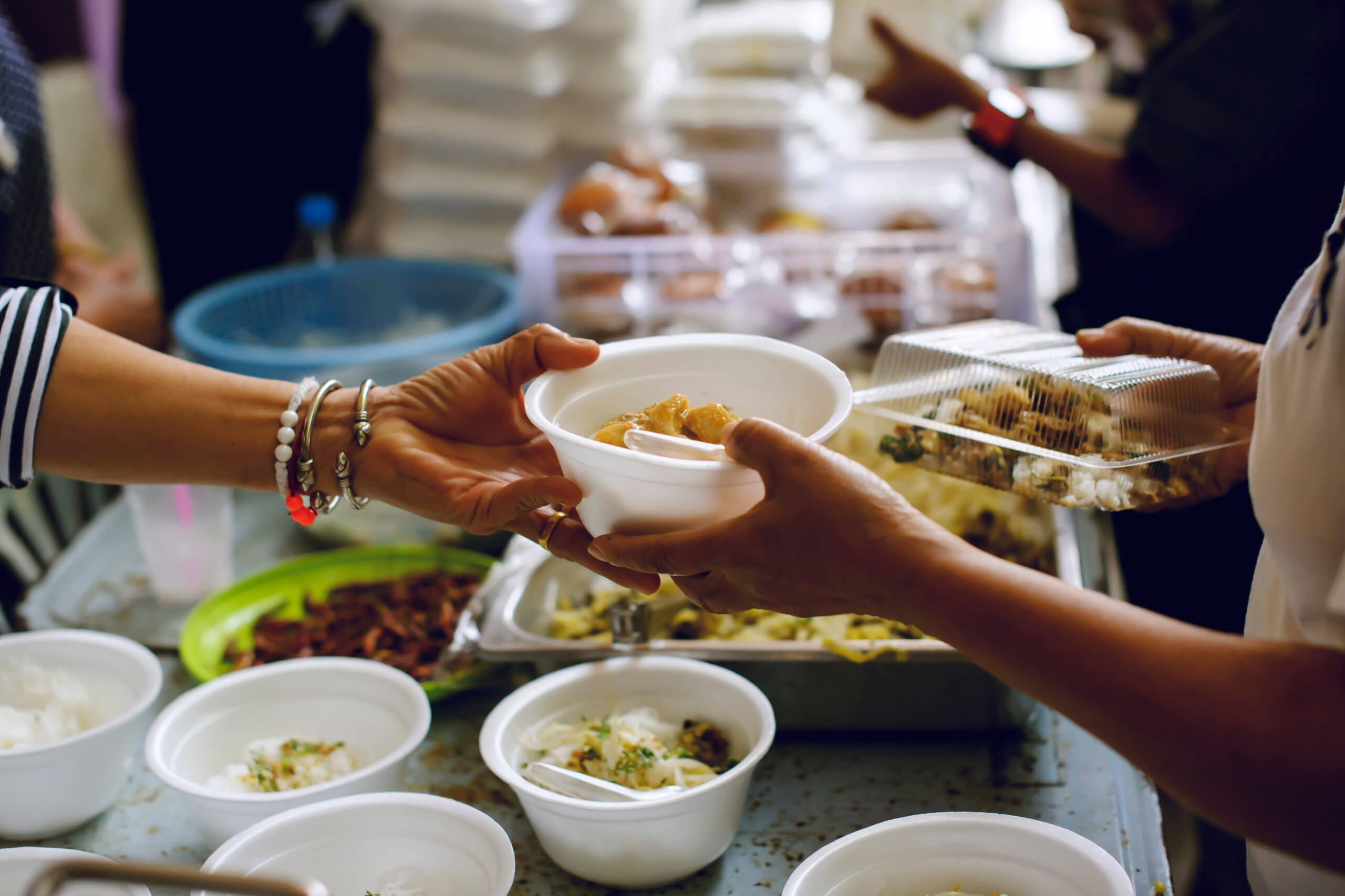
Plastic packaging is vital to our food industry because it keeps our food safe, extends expiration dates, and reduces food and packaging waste. In addition to these benefits, plastic is also critical to ensuring that those in need have access to hot meals and warm clothing during the colder winter months and over the holidays. Soup kitchens, meal delivery services and clothing donation centers rely on plastic, both for individual packaging and to transport bulk goods, to ensure that meals arrive hot, and clothing remains clean and is safely packaged for recipients.
As food prices and inflation rise ahead of the holiday season, soup kitchens and food banks will become even more important for those in need. Their services rely on plastic packaging to ensure that prepared meals can be safely and effectively served to the homeless, those in need and the elderly. Most importantly, containers used to serve food both in-person and through food deliveries, must keep food hot while it is being packed and during transit.
Polystyrene, a type of plastic polymer, is the perfect material to do the job due to its high-quality insulation and durability. Expanded polystyrene is about 98% air, and while air molecules do not conduct heat, they are extremely good at convection, or insulation. With this design, polystyrene containers can keep food hot for much longer than containers made with alternative materials, ensuring that those in need have access to hot meals. Additionally, these containers are lightweight so they are easier to pack and transport for both those who pick up food or for those who are delivering it. Lightweight packaging also has environmental benefits, and according to a life cycle assessment from the University of Cambridge, using plastic packaging can reduce energy consumption by 40% compared to other materials.
Once prepared food is packaged in durable and light plastic containers, food is packed into larger thermal bags for transport. These thermal bags, which are made of polyester, nylon or vinyl—all plastic polymers—provide an additional layer of protection and ensure that all food is delivered hot. On the other end of the spectrum, these thermal bags can also keep easily-perishable foods like yogurt and other dairy products cold while in transit to those in need.
While plastic ensures that all in need can access a hot meal over the holidays, plastic bags and other plastic packaging materials are equally as important for keeping clothing donations clean before they reach their recipients. According to a textile and electronic waste recycling company, plastic bags are actually the best material to protect clothing both when they are donated and when they are sorted and repackaged to be sold or given away. Oftentimes both small grocery bags and large black trash bags, are reused by the donation center or by those who are receiving much-needed winter clothes. Donation centers also need large plastic containers or bins, which are in short supply, for sorting and storage, and to help increase efficiency.
After clothes are received and sorted, plastic again comes to the rescue to bundle clothes efficiently for transport and resale or donation to the homeless. Bales of clothes are wrapped tightly together using an industrial material similar to plastic wrap. This compresses items and allows for easier and more efficient transport. At every step of the donation cycle, plastics allow clothing to reach their new homes as quickly and as safely as possible, ensuring that all in need have something warm to wear over the holidays.
While plastics are vital to ensuring that all have access to hot food and warm clothing over the holidays, companies and NGOs also recognize that it is important to ensure that plastic stays out of the environment. That’s why organizations, like Meals on Wheels, are incorporating more durable, reusable plastic trays and containers into their operations, which provide similar benefits as single-use options but can be used again and again by both soup kitchens and those who receive food. Just Serve, a food bank, also collects and recycles donated plastic water and beverage containers and aluminum cans that can boost funding for food delivery. Innovative programs like these help ensure that all plastic is reused or recycled as this vital material supports the goals of food banks and soup kitchens.
With the help of plastics, soup kitchens, food banks, donation centers, and more are able to get a hot meal and a coat to those who need it most so all can have a safe and warm holiday season.